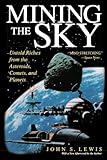Stephen Hawking on Alien Contact
Yesterday I came across a Sky News reports about what Stephen Hawking had said regarding alien contact. As I have a strong interest in science fiction as soon as I saw the title of the article I was hooked. It isn’t everyday the eminent scientist comments on the subject of alien life publicly and it certainly isn’t common for them to comment on the activities of mankind in preparation for this contact.

Those with strong fundamentalist religious belief may wish to look away now.
Alien Contact – Are We Right to Fear it?
Ever since science suggested that space is infinite there has been a related implication that there may well be other planets capable of supporting life. After all, in a truly infinite universe the chances of such a planet existing have a probability of one, that is to say this is a certainty. Of course some would argue that the planet capable of supporting life is Earth and we already live here!
As a teenager I remember watching a television programme featuring Carl Sagan. In this program he systematically calculated the chances of life existing on other planets elsewhere in the galaxy. I do not remember the exact details of how we arrived at the final figure, I do remember that the final figure was very large, in the order of tens of thousands of planets capable of supporting extraterrestrial life.
Carl Sagan’s calculations were performed decades ago and science has moved on. What I find interesting about his calculations however is that when compared with modern science today they were actually quite conservative. Modern imaging techniques have proven that there may well be many, many, more planets in the universe than we originally anticipated.
Something I do not remember Carl Sagan discussing however is the relative age of our solar system compared to the universe at large. The solar system, of which our Earth is a part, is very young in galactic terms. Science currently tells us that life originated on Earth as primitive organisms approximately 3.8 billion years ago. That same scientific theory also tells us that the universe is approximately 13.75 billion years old. If life evolved on Earth by chance that it is also highly likely to have evolved by chance elsewhere in the universe. As many of the solar system’s containing planets are much older than our own it stands to reason that if life evolved their it will be much more advanced than our own.
This type of reasoning is the basis of Stephen Hawking’s comments and I read them with interest.
I write science fiction and when I do so I often take what is known to be true and extrapolate it into what is merely possible.
So what was Stephen Hawking’s advice to humanity?
At its most succinct it could be described as “hide, be quiet and hope they don’t notice us”.
The reason he gives such cautionary advice is based upon a couple of premises. The first is that aliens may well have used up all resources on their home planet and this fact is what has caused them to become expeditionary nomads in outer space. His view is that aliens arriving at another planet will look at it merely for the resources it possesses. Secondly, he compares the situation of humanity to that of the American Indians at the time of the arrival of Columbus. He points out that the technological gap between Columbus and his men and the native Indians meant that things went badly for the Indians.
While I can see the wisdom in Stephen Hawking’s viewpoints, I do not share them.
Any alien life that has propulsion technology sufficiently advanced to arrive here is also pretty likely to have solved the problems of scarcity of resources.
Energy, in various forms, is much more common in the universe that many people suppose. For example, the whole of life on Earth is supported by the energy this planet receives from the sun and yet this planet harnesses only a microscopic fraction of the energy output of that star. If we could make use of even 0.1% of the energy output of the sun we would have more than enough energy for everyone on Earth to live with the North American lifestyle.
There is a similar situation when we look at rare minerals and the various elements that we commonly use on Earth. We assume that certain elements are rare, because on Earth they are, but when we look across our solar system we see that in other areas they are plentiful. Given sufficient time to develop appropriate space propulsion technology humans will no doubt be mining in the asteroid belt. By the time humanity manages to reach this level it is very likely that we will have solved our energy problems as well.
These ideas are not just my own either. There have been a number of books released over the years by top scientists that show that it is not just possible, but necessary that humanity develops a space faring culture and goes to the stars.



Why Stephen Hawkings Advice on Alien Contact is Wrong
Stephen Hawkings concerns about alien contact may be well reasoned, but they seem to miss one important point. If, when we made contact with an alien race, we were also a spacefaring culture there would be little to fear. The reason for this is because, although a hostile alien life form might destroy individual colonies or spacecraft, the chances of them being able to destroy the whole of humanity, if humanity was widely spread across the stars, is much reduced. Efforts to secure the future of humanity are therefore best met by being bold explorers of space and not by huddling quietly in the corner and hoping no alien life notices us. The sooner we get into space and establish meaningful colonies there, the better.
So, thank you Stephen Hawking for your well meant advice, but when humanity makes alien contact for the first time I hope that we do it as space faring equals and not like scared schoolchildren.
Click here for more about Alien Contact

Pingback: Alien Contact | djfelton.com